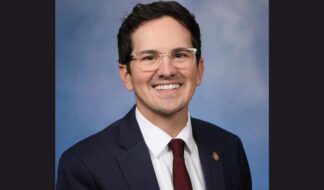By Kathleen LaTosch
This month the John C. Anderson Apartment building opened up in Philadelphia, PA. It marks the third city in the country to have designated affordable housing for LGBT elders, joining Los Angeles and Minneapolis. The buzz around the country is that our sister city, Chicago, will soon open a fourth affordable housing apartment for LGBT elders.
In the past, housing for LGBT older adults was spearheaded mostly by profit-oriented real estate developers with largely unsuccessful results related to the recent struggles of our economy. Among these efforts, affordable housing was often left out of the conversation and I applaud the efforts of these cities to create a safe space for lesbian, gay, bisexual and transgender older adults to continue to thrive into their golden years, regardless of income level.
But is it serving the need? At the LGBT Older Adult Coalition, we use the low end of the National Gay and Lesbian Task Force's LGBT population estimate. Accordingly, roughly five percent of the population is LGB and/or T. Based on Michigan's 2010 Census Bureau statistics and figuring the population at five percent, that means there are currently 68,077 LGBT people aged 65 and better living in Michigan. Another 62,600 are 55-64 years old and will join the retirement age by 2020, for a total of 130,677 LGBT older adults. Wayne, Oakland and Macomb Counties typically make up about 30 percent of the state's population, which means we're looking at 43,559 people.
The three apartment buildings now available nationally to LGBT older adults offer a combined total of 200 units. Even if we worked on creating a single complex in Detroit, it would literally be a drop in the bucket. We'd have to build over 400 more buildings. In the article about the John C. Anderson apartments, the author follows a new tenant, mentioning that he "landed a coveted spot…" His application must have stood out, but I wonder who decides who gets one of the coveted spots? LA's Triangle Square has such a long waiting list that folks expect to have to wait 10 years to get in. Some folks joke that they'll probably be dead before their name comes up on the list.
At the LGBT Older Adult Coalition, we're concerned about housing too, but we also want to create a solution that reaches as many LGBT elders as possible, and as affordably as possible. So we're doing it differently. In January, we formed the Village Network Committee. Chaired by long-time community member Jim Whipple, Village Networks offer people access to safe, friendly referrals for any kind of service you can imagine, services that allow a person to age comfortably in his/her own home. They also provide social activities and social connection among members. Members often contribute their own time and talents in support of other members. A professional plumber may offer free services to another member, a seamstress may offer to reupholster a piece of furniture, an IT tech may offer up their computer skills. Bartering for service provides a cost savings to members.
Forbes Magazine recently named Village Networks as a cost-effective way to "age in community." It's much more cost effective for people than living in a retirement community and also allows people to stay in their own communities and neighborhoods where they have formed a lifetime of relationships. In fact, the research shows, straight or gay, 90 percent of older adults would prefer to stay in their own homes, as long as it's safe and they can afford it.
A Village Network has the potential to provide supportive services to an unlimited number of LGBT older adults. A local Rainbow Village Network would ensure that home chore providers, electricians, home repair people, and home care workers are LGBT-friendly and vetted before they enter a member's home. The network staff could assist in the creation of a buddy system and create a call service to check on older adults living alone.
Only two in ten LGBT elders can look forward to children taking care of them in their old age. At the LGBT Older Adult Coalition, we know that and we're working to put systems in place that will help LGBT elders stay in their own homes and remain connected to communities. We are currently asking for folks to join our planning committee to create a Village Network serving the LGBT older adult population in the Detroit area. If you or someone you know would like to join our planning committee, please contact Kathleen LaTosch or Jay Kaplan or visit our website at http://www.lgbtolderadults.com.









